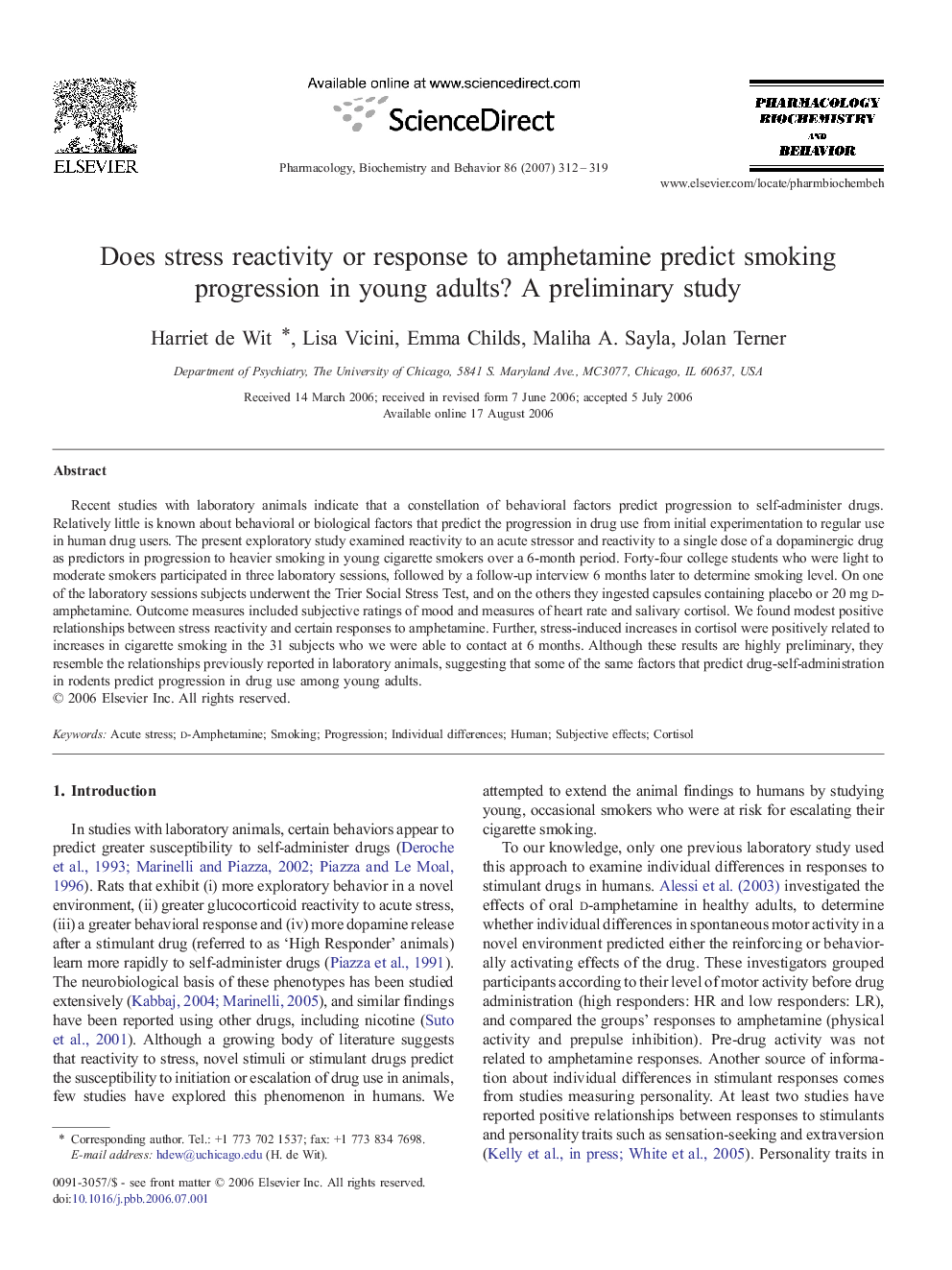| Article ID | Journal | Published Year | Pages | File Type |
|---|---|---|---|---|
| 2014446 | Pharmacology Biochemistry and Behavior | 2007 | 8 Pages |
Recent studies with laboratory animals indicate that a constellation of behavioral factors predict progression to self-administer drugs. Relatively little is known about behavioral or biological factors that predict the progression in drug use from initial experimentation to regular use in human drug users. The present exploratory study examined reactivity to an acute stressor and reactivity to a single dose of a dopaminergic drug as predictors in progression to heavier smoking in young cigarette smokers over a 6-month period. Forty-four college students who were light to moderate smokers participated in three laboratory sessions, followed by a follow-up interview 6 months later to determine smoking level. On one of the laboratory sessions subjects underwent the Trier Social Stress Test, and on the others they ingested capsules containing placebo or 20 mg d-amphetamine. Outcome measures included subjective ratings of mood and measures of heart rate and salivary cortisol. We found modest positive relationships between stress reactivity and certain responses to amphetamine. Further, stress-induced increases in cortisol were positively related to increases in cigarette smoking in the 31 subjects who we were able to contact at 6 months. Although these results are highly preliminary, they resemble the relationships previously reported in laboratory animals, suggesting that some of the same factors that predict drug-self-administration in rodents predict progression in drug use among young adults.
